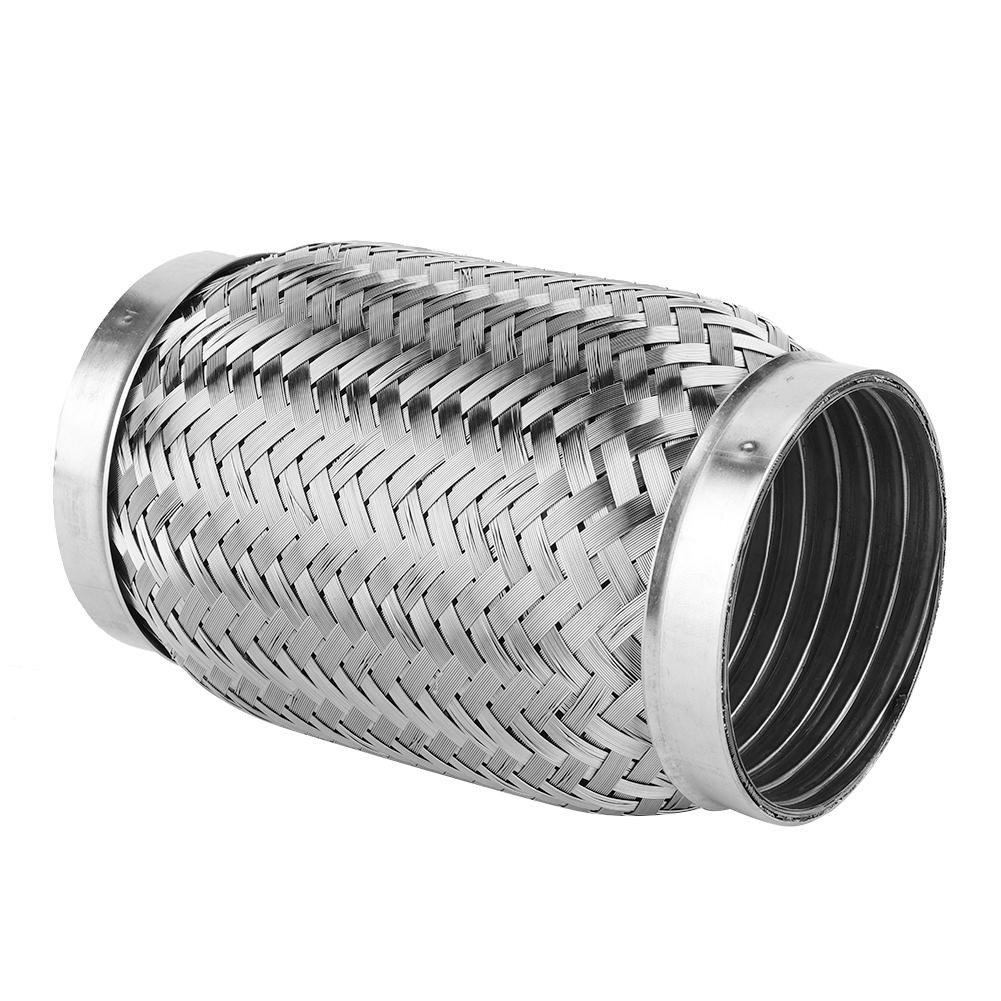
4 Symptoms That Your Exhaust Flexi Pipe Is Leaking
A
type of metal bellows is a flex pipe. The exhaust system has some flexibility
thanks to this flexible piece of pipe. In essence, it serves as a connector for
exhaust pipes. Stainless steel or forged steel are frequently used to make
them.
A
flex pipe, which is often composed of forged or stainless steel, provides the
flexibility your front-wheel-drive vehicle's exhaust system requires. Because
the exhaust gas leaving an automobile's tailpipe causes the exhaust pipes to
heat up considerably, manufacturers are unable to use flexible materials like
rubber to allow an exhaust system to move or bend.
If
you notice louder-than-normal exhaust noises, check MOT expiration
date of your car and have your exhaust system inspected and necessary
repairs completed by a qualified mechanic to avoid a failed MOT. If your
flex pipe is cracked, your engine will sound excessively loud. It's likely that
your pipe is generating a hissing or tapping sound that gets louder when the engine
speed is increased.
So
that it can survive extremely high gas temperatures and provide your vehicle's
exhaust system with the flexibility it needs, the flex pipe is made of metal
strips that are woven into a lattice. As a result, the flex pipe, which
prevents the vehicle's exhaust system from breaking, is a crucial component of
practically all all-wheel-drive vehicles.
What symptoms indicate an exhaust leak in a flexible pipe?
It's
not always simple to spot a flex pipe exhaust leak, let alone when it first
begins to malfunction. Are you aware that on a check MOT history, a
common reason for an emissions test failure is a faulty exhaust flexi pipe?
The
following warning indicators indicate that your exhaust flex pipe is leaking:
1. Loud noises
One of the
first signs of an exhaust leak is a loud noise. If your flex pipe is cracked,
your engine will be extremely noisy. As the engine speed is increased, a
hissing or tapping sound coming from your pipe could become louder.
2. Bad odours
If you can
smell fuel while your engine is running, you definitely have an exhaust leak.
Hazardous vapours with a diesel fuel odour can enter the engine room if you
have a flex pipe exhaust leak. As mentioned earlier, if you check MOT history of your vehicle online and a previous MOT failed due to the
emissions test, the culprit could have been the flexi pipe. Refer back to the
repair invoices (if any) to confirm what steps were taken to fix this issue.
3. Reduced power and efficiency
Problems with the engine's acceleration performance or fuel
efficiency are another crucial sign. You may have an exhaust system leak if you
observe either of these problems. This results from the leak's loss of backpressure.
4. Hanging exhaust pipe
It should go without saying that you have an exhaust issue if your
exhaust pipe is hanging. A leak or crack may have grown larger, causing a
portion of your pipe to dangle or hang from the car. On a MOT history,
this is a common reason for a failure.
What Deteriorates a Flex Pipe?
A
flex pipe might deteriorate due to rust. Flex pipes of lower quality are more
prone to rust more quickly and possibly even through.
The
engine may move too much as a result of damaged or flimsy motor mounts, which
increases the risk of the flex pipe breaking.
Your
vehicle bottoming out can also break a flex pipe. The flex pipe could become
punctured as a result of this.
Is A Broken Flex Pipe Safe to Drive With?
Even
a broken flex pipe can be used to drive. For a number of reasons, this decision
might not be the best one.
Driving
while carrying a damaged flex pipe puts your health in danger, hence it is
dangerous to do so. Dangerous emissions like carbon monoxide are helped to move
away from you by a flex pipe. Higher carbon monoxide levels in your cabin as a
result of a damaged flex pipe might make you feel sick and lightheaded
temporarily and make you drive dangerously.
The
other components of your car will eventually sustain damage from the noxious
gases from your broken flex pipe. In fact, if there is a hole in the pipe close
to the engine, these gases may possibly start a fire.
You'll
spend more money if you drive with a damaged flex pipe. Flex pipes are designed
to remove harmful gases from your vehicle, but if one breaks, this won't be
possible, which will cause your car to run less smoothly and use more fuel.
Driving
as a result of a damaged flex pipe is dangerous and should be avoided.
Therefore, as soon as you identify a problem with your flexi pipe, you
should acquire a replacement.